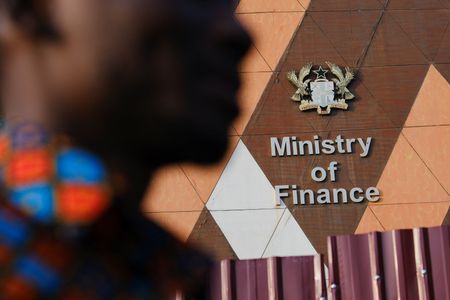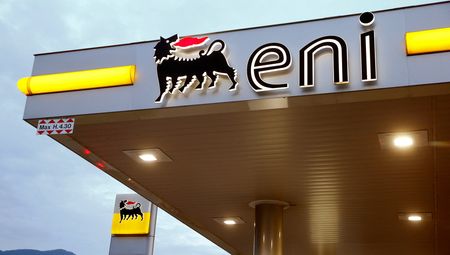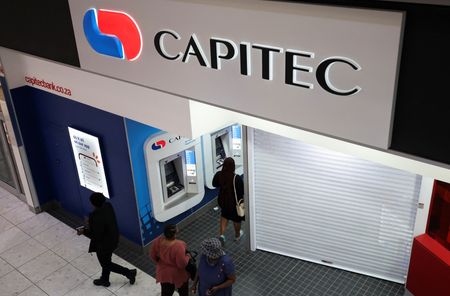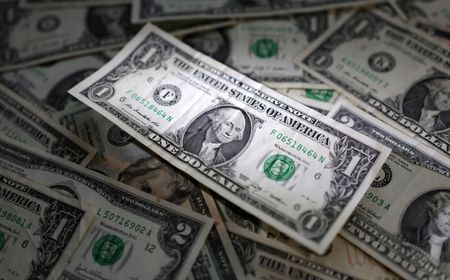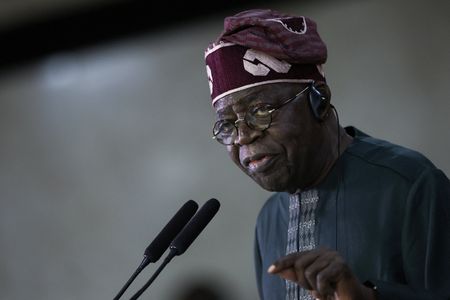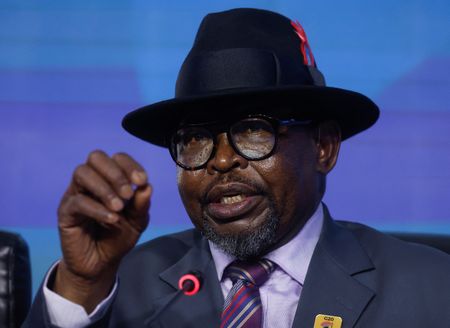By Emmanuel Bruce
ACCRA (Reuters) -Ghana’s ban on its pension funds from offshore investments is curtailing their ability to hedge risks, executives said, as authorities seek to jumpstart the domestic bond market in the wake of its sovereign debt restructuring.
The government in Accra blocked funds from putting workers’ cash into offshore investments last year after concluding a restructuring of its local and foreign debts which decimated its local debt market – once a destination for major international asset managers like Franklin Templeton.
The ban was designed to reduce pressure on the cedi currency. The executives, however, said the measures proved counterproductive.
“This is affecting our ability to diversify our portfolios and hedge our investments against macro-economic shocks,” said Afriyie Oware, the chief executive of Axis Pensions.
The industry has been engaging the regulator National Pensions Regulatory Authority (NPRA) to persuade it to lift the ban, Oware said. The NPRA did not respond to requests for comments.
In August, the government announced it plans to start selling bonds locally in the second half of this year after only being able to issue Treasury bills, or short-dated government securities, since the restructuring.
But pension fund managers cautioned that memories of the government’s past fiscal excesses could also undermine efforts to get domestic markets back on track.
“The fiscal discipline with which the government attends to business is something that will be at the forefront of our risk analysis given what has happened in the past,” Oware said.
AFRICA’S PENSION INDUSTRY ASSUMES NEW IMPORTANCE
Domestic pools of cash, including pension assets, have taken on more significance in Africa as governments search for new ways of financing projects, including much-needed infrastructure development, as donor funds dwindle and high interest rates lock out low-rated governments from international markets.
West African cocoa and gold producer Ghana reformed its pensions sector in 2010, bringing some contributions under the management of private funds in a tiered system that also has a state, national pensions scheme.
That model has led to growth. Total pension assets stood at 86.23 billion Ghanaian cedi ($6.93 billion) at end-2024, up from 61.8 billion cedi at end-2023, according to central bank data.
“A forward-looking pension system necessitates geographic diversification,” said Thomas Kwesi Esso, executive secretary of the Chamber of Pension Trustees of Ghana, an industry lobby.
Esso pointed to Kenya, South Africa and Botswana, all of which allow funds to put part of their assets into foreign markets, and enjoy stability in their foreign exchange rates.
While the cedi slid by a quarter against the dollar in 2024 mainly due to the turmoil caused by the debt restructuring, it has strengthened 20% this year.
The gains have been driven by the successful debt rework and a surge in the price of gold and bolstered by a dollar that has weakened some 10% year-to-date.
The ban does not apply to Ghana’s dollar bonds, listed on international financial markets, fund managers said, offering them a measure of relief.
“Although this ban could help deepen the domestic market, you can’t play games with pensioners’ funds so restricting them is not the right thing,” Said Boakye, economist and executive director of Ghana’s Institute of Fiscal Studies, told Reuters.
($1 = 12.4500 Ghanaian cedi)
(Reporting by Emmanuel Bruce in Accra; Additional reporting and writing by Duncan Miriri in Nairobi; Editing by Karin Strohecker and Alexandra Hudson)



